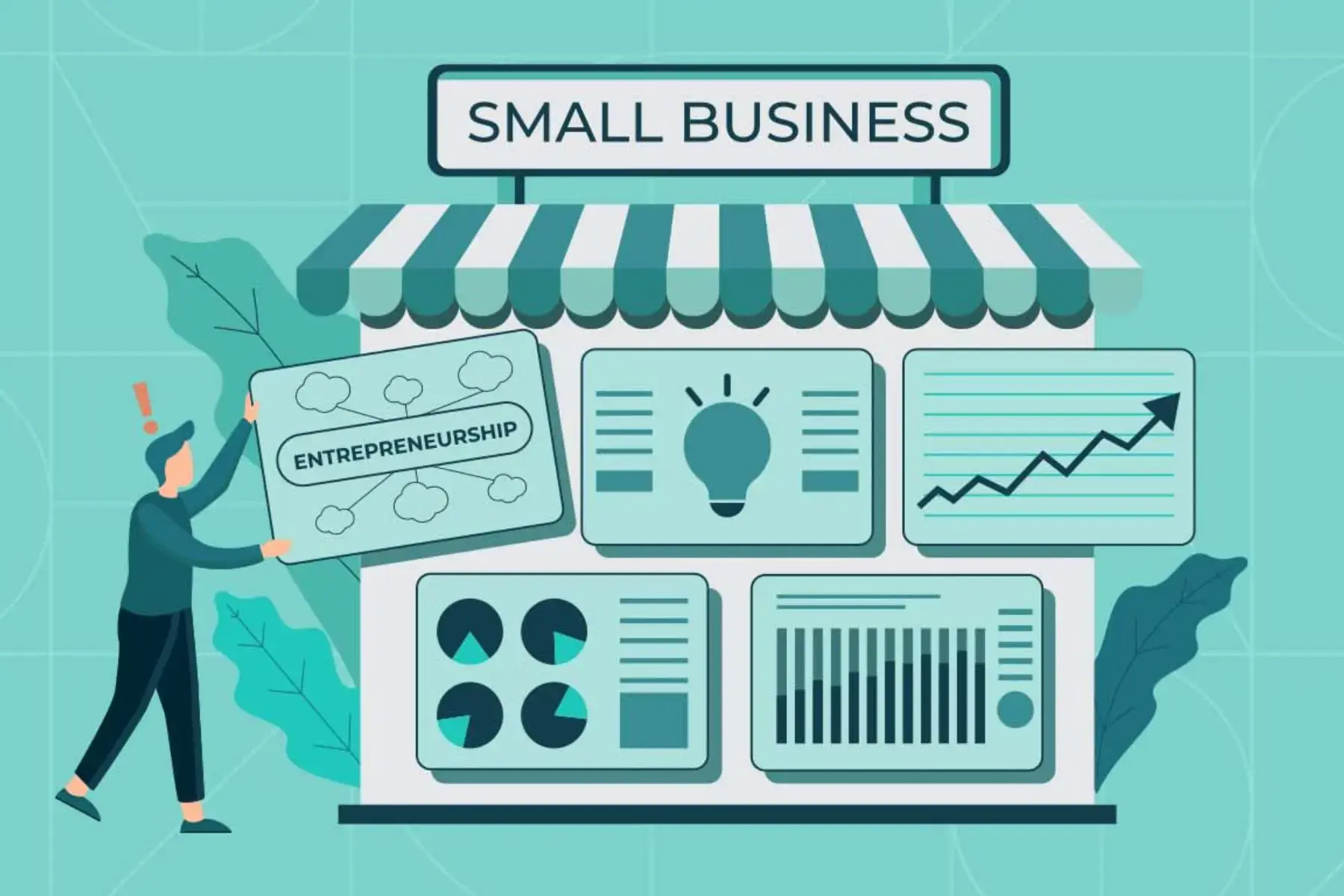Affordable Websites for Small Businesses: A Comprehensive Guide
Explore the world of affordable websites for small businesses, the key benefits, and why having a website matters now more than ever.
Posted by
 Sabyr Nurgaliyev
Sabyr Nurgaliyev
Introduction
Building a website for your small business used to be a luxury, but today it’s a necessity. Your digital presence is the first impression many potential customers will have of your business, so it's essential to make it count. But here’s the kicker: it doesn't have to break the bank. Many affordable website options are available for small businesses, and in this article, we'll dive into everything you need to know about getting your business online without emptying your pockets.
Why Do Small Businesses Need Websites?
Ever wonder why every business, big or small, is rushing to get online? Well, it’s simple—your website is your online storefront. It gives potential customers a sense of your brand, services, and products, all while establishing credibility. Even if your business operates primarily offline, an online presence helps you reach a broader audience, boosts sales, and keeps you competitive.
What is an Affordable Website?
Defining Affordability
When we talk about affordable websites for small businesses, we’re not just talking about cost. Sure, price matters, but so do functionality, maintenance, and the long-term value your website delivers. What’s affordable for one business might not be for another, depending on the complexity of their needs.
Key Components of Affordable Websites
- Hosting: Where your site lives on the internet.
- Domain Name: Your business’s web address.
- Website Builder: A tool that helps you design and create your site.
- Content Management System (CMS): A platform that allows you to update and manage your website content.
- Templates & Themes: Pre-designed layouts to streamline the design process.
How Much Should a Small Business Website Cost?
When budgeting for your website, costs can vary. But let’s break it down:
- DIY Platforms like Wix or Squarespace might cost between $12 to $40 per month.
- Custom Design services can range from $2,000 to $10,000 or more, depending on complexity.
- Domain Name prices can vary from $10 to $15 annually.
- Hosting costs typically range from $3 to $10 monthly.
Pros and Cons of DIY Website Builders
The Good
The rise of DIY website builders has been a game-changer for small businesses. Platforms like Wix, Squarespace, and WordPress offer user-friendly tools that allow anyone to create a professional website without coding skills.
- Affordability: These platforms are budget-friendly and often come with all-inclusive pricing models.
- Flexibility: You can easily change the design or add new features as your business grows.
- SEO Tools: Most DIY platforms come with built-in SEO tools to help your site rank on Google.
The Drawbacks
While DIY platforms offer affordability, they come with a few limitations:
- Limited Customization: Custom features and designs can be harder to implement.
- Learning Curve: Though they’re user-friendly, there’s still a learning curve for beginners.
- Subscription Costs: Long-term subscription fees can add up over time.
What Makes a Website "Cheap" But Effective?
Balancing Cost with Quality
Finding a "cheap" website doesn’t mean sacrificing quality. You can still have an effective, visually appealing, and functional website without spending thousands. A balance between DIY platforms, strategic investments in professional design services, and open-source solutions can help achieve that.
Open-Source Solutions: A Hidden Gem
Many businesses opt for open-source CMS platforms like WordPress.org because they are free to use. While you’ll still need to pay for hosting and a domain, using an open-source platform significantly reduces costs. Plus, WordPress has countless plugins to extend functionality.
Website Essentials Every Small Business Needs
Must-Have Features
Your website is more than just a pretty face. It needs certain core features to function efficiently and give your users a great experience.
1. Responsive Design
A responsive design ensures your website looks great on mobile devices, tablets, and desktops. Google also favors mobile-friendly sites, giving them a ranking boost.
2. Contact Information
Customers need an easy way to reach you. Having a clear, accessible “Contact Us” page with your phone number, email, and address is a must.
3. SEO Optimization
SEO is key to ensuring your site appears in search engine results. Make sure your website follows basic SEO practices like keyword usage, meta descriptions, alt text for images, and fast loading speeds.
4. SSL Certificate
An SSL certificate provides a layer of security for your website, which helps establish trust with visitors.
5. Blog or News Section
Updating your site regularly with fresh content can improve SEO rankings and keep your audience engaged.
Free vs Paid Website Platforms
The Allure of Free
Many free website platforms exist, like WordPress.com and Weebly, but they often come with limitations such as:
- Ads on your site: Some platforms place ads on your site, which can look unprofessional.
- Limited Customization: Free platforms restrict access to themes and plugins.
- Limited Bandwidth: As your site traffic grows, free platforms might not scale effectively.
Why Paid Is Worth It
Paid platforms offer more control, better design options, and superior customer support. A small investment in a paid platform can give your site the polish and functionality it needs to make a good impression.
How to Choose the Right Website Builder for Your Business
Evaluating Your Needs
Before you choose a website builder, consider the following:
- Your Budget: How much are you willing to spend?
- Your Design Needs: Do you want something simple or highly customized?
- Your Business Goals: Do you need e-commerce features, or are you just looking for a portfolio site?
Popular Options
- Wix: Known for its ease of use and drag-and-drop editor.
- Squarespace: Offers stunning, minimalist designs perfect for creatives.
- WordPress.org: The most customizable platform, but requires a bit more technical know-how.
The Role of SEO in Affordable Websites
Why SEO Matters
Good SEO practices ensure your website gets found by search engines, which can help drive organic traffic. Even the most beautifully designed site won’t do much if no one can find it.
Basic SEO Checklist
- Use Alt Text: Always describe your images.
- Optimize Page Speed: Slow-loading pages can hurt your rankings.
- Internal Linking: Link to other relevant pages on your site to improve navigation and SEO.
- External Links: Link to high-quality, credible sources like Wikipedia.
Are Cheap Websites Reliable?
Weighing the Risks
Affordable doesn’t always mean low-quality. There are many cost-effective platforms and builders that offer both reliability and robust features. Just be sure to do your research and read reviews before committing to any service.
FAQs
1. Can I build a website myself for free?
Yes, platforms like WordPress.com and Weebly offer free plans. However, these usually come with limitations, such as ads and less customization.
2. How much does it cost to build a small business website?
A DIY website can cost as little as $12 per month, while a custom-designed website could range anywhere from $2,000 to $10,000.
3. Is WordPress a good platform for small businesses?
Absolutely! WordPress is highly customizable and affordable, making it a popular choice for small businesses.
4. Do I need to know coding to build a website?
Not necessarily. Many platforms like Wix and Squarespace offer drag-and-drop builders that don’t require any coding knowledge.
5. Should I hire a professional to build my website?
It depends on your budget and needs. If you're looking for a highly customized site with advanced features, hiring a professional may be the best option.
6. How long does it take to build a website for a small business?
With DIY platforms, you can have a basic site up and running in just a few hours. Custom-designed websites can take weeks or even months, depending on complexity.
Conclusion
Building a website for your small business doesn’t have to cost a fortune. With affordable options like DIY website builders, open-source platforms, and strategic budgeting, you can create a site that looks great and functions well. Whether you're looking for something simple or need advanced features, there’s an affordable solution out there for you.
Links to other services:
Related Articles

Discover how small businesses can create affordable, high-quality websites. Learn about cost-effective strategies, essential features, and tools to build a robust online presence.
 Sabyr NurgaliyevNov 6, 2024
Sabyr NurgaliyevNov 6, 2024
Explore the best and most budget-friendly website solutions tailored for small businesses to thrive online.
 Sabyr NurgaliyevNov 3, 2024
Sabyr NurgaliyevNov 3, 2024
Explore budget-friendly website options for small businesses that boost visibility and functionality without breaking the bank.
 Sabyr NurgaliyevNov 2, 2024
Sabyr NurgaliyevNov 2, 2024
Learn how small businesses can create cost-effective, high-quality websites using various platforms and approaches.
 Sabyr NurgaliyevNov 1, 2024
Sabyr NurgaliyevNov 1, 2024
Explore affordable ways small businesses can build impactful websites, optimize SEO, and create a strong online presence.
 Sabyr NurgaliyevOct 31, 2024
Sabyr NurgaliyevOct 31, 2024
An in-depth look at creating affordable, effective websites for small businesses, including strategies, tips, and essential resources.
 Sabyr NurgaliyevOct 30, 2024
Sabyr NurgaliyevOct 30, 2024